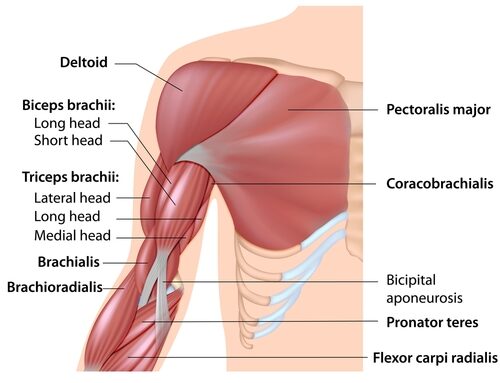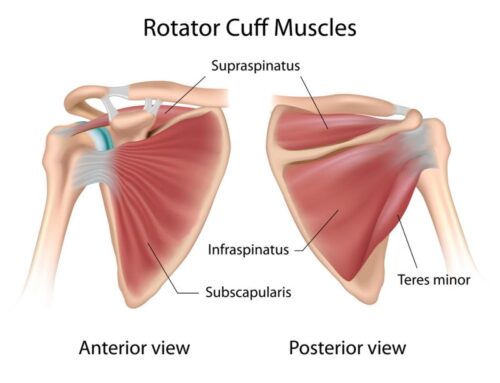Managing Crohn’s Disease can be a challenging journey, especially when faced with the unpredictable nature of flare-ups. For individuals managing this chronic inflammatory condition, understanding how to navigate and alleviate flare-up symptoms is essential for maintaining a better quality of life. In this comprehensive guide, we delve into the art of managing your chron disease flare ups. We explore effective strategies, coping mechanisms, and lifestyle adjustments that can make a significant difference during these exacerbations. Whether you or a loved one are on this journey, join us as we uncover valuable insights, natural remedies, and expert tips to empower you in handling Crohn’s flare-ups and regaining control over your health and well-being.
to empower you in handling Crohn’s flare-ups and regaining control over your health and well-being.
What Is Chron’s Disease: An Inflammatory bowel disease
Crohn’s Disease, classified as an inflammatory bowel disease (IBD), is a chronic condition characterized by inflammation and irritation of the gastrointestinal tract. It is distinct from ulcerative colitis, another form of IBD, though they share similarities. The condition primarily affects any part of the digestive tract with a predilection for the terminal ileum and the colon. One of the hallmark symptoms experienced by individuals with Crohn’s Disease is abdominal pain, which can range from mild discomfort to severe cramping. This abdominal discomfort often arises due to the chronic inflammation in the affected areas of the gut, leading to significant discomfort and a reduced quality of life for those living with the condition.
As an inflammatory bowel disease, Crohn’s Disease is characterized by periods of exacerbation, commonly referred to as flare-ups, followed by periods of remission. During these flare-ups, the inflammatory process intensifies, causing various symptoms to manifest, such as diarrhea, weight loss, and fatigue. The disease’s chronic and relapsing nature requires continuous management and medical attention. While sharing similarities with ulcerative colitis, which exclusively affects the colon and rectum, Crohn’s Disease can impact any part of the digestive tract, leading to complications like strictures, fistulas, and malabsorption. A comprehensive approach to managing Crohn’s Disease involves a combination of medications, lifestyle modifications, and close monitoring by healthcare professionals to alleviate symptoms, promote remission, and improve the overall quality of life for individuals living with this complex condition.
Recognizing the signs and symptoms of Chron’s Disease
Recognizing the signs and symptoms of Crohn’s Disease is vital for early diagnosis and effective management. It is imperative to stay vigilant for these manifestations, as they can often overlap with other gastrointestinal disorders. Patients with Crohn’s Disease may present with a wide range of symptoms, many of which extend beyond the digestive tract due to the condition’s systemic nature. Some key common symptoms to look out for include:
– Persistent abdominal pain and cramping
– Diarrhea, often accompanied by mucus or blood
– Unintentional weight loss
– Fatigue and weakness
– Loss of appetite
– Fever and night sweats
– Joint pain and swelling, indicating potential involvement of the musculoskeletal system
As a form of inflammatory bowel disease (IBD), Crohn’s Disease can cause debilitating symptoms that can fluctuate in intensity over time. Patients may experience periods of remission, during which symptoms temporarily subside, followed by flare-ups, where symptoms worsen due to heightened immune system activity. These exacerbations can be unpredictable and vary in frequency and severity among individuals, emphasizing the importance of close monitoring and personalized treatment plans to optimize patient outcomes. [More Ways To Help IBD]
Treatment options for People with Crohn’s disease
 Comprehensive treatment approaches play a crucial role in managing Crohn’s Disease, an inflammatory bowel disorder with potential implications beyond the digestive system. It is essential to explore the wide array of treatment options available to effectively address this complex condition. The primary objective is to reduce inflammation, alleviate symptoms, and improve patients’ overall quality of life.
Comprehensive treatment approaches play a crucial role in managing Crohn’s Disease, an inflammatory bowel disorder with potential implications beyond the digestive system. It is essential to explore the wide array of treatment options available to effectively address this complex condition. The primary objective is to reduce inflammation, alleviate symptoms, and improve patients’ overall quality of life.
Medications constitute a cornerstone of Crohn’s Disease treatment, with various drugs targeting different aspects of the immune system’s inflammatory response. Nonsteroidal anti-inflammatory drugs (NSAIDs), while commonly used for joint pain relief, are generally avoided in Crohn’s patients due to their potential to exacerbate the condition. Instead, the focus shifts to medications like corticosteroids, immunomodulators, and biologics, which help suppress the overactive immune response responsible for the chronic inflammation in the digestive tract. These medications can both induce remission and maintain remission, but long-term use may carry certain risks, necessitating careful monitoring and management.
In conjunction with pharmaceutical interventions, lifestyle changes play an integral role in comprehensive Crohn’s Disease management. Patients are encouraged to adopt a more balanced diet and nutritious diet that avoids trigger foods and promotes gut health. Regular exercise can also aid in symptom management and overall well-being. Stress reduction techniques, such as mindfulness practices or relaxation exercises, may help mitigate flare-ups, as stress has been known to impact the immune system and potentially trigger or worsen symptoms. In cases where medication and lifestyle modifications prove insufficient, surgical interventions might be considered. Surgical procedures aim to address complications like strictures, fistulas, or abscesses and are often utilized as a last resort to improve symptoms and enhance the patient’s quality of life. Collaborating with patients to develop individualized treatment plans that encompass the appropriate mix of medications, lifestyle adjustments, and surgical interventions is critical in managing Crohn’s Disease effectively and providing optimal care for those impacted by this chronic condition.
Out of the box Treatment options for Chron’s Disease flare-ups
Discover a diverse array of out-of-the-box approaches, from probiotics to massage therapy, that may complement conventional treatments in managing Crohn’s Disease and improving overall well-being.
1. Probiotics and Gut Microbiome: Exploring specific probiotics or fecal microbiota transplantation (FMT) to support gut health and potentially alleviate inflammation.
2. Mind-Body Techniques: Incorporating mind-body techniques such as meditation, biofeedback, hypnotherapy, and massage therapy to manage stress and reduce the frequency and intensity of flare-ups.
3. Acupuncture and Acupressure: Considering traditional Chinese medicine therapies like acupuncture to promote relaxation and potentially address imbalances in the body.
4. Dietary Modifications: Exploring specific diets like the Specific Carbohydrate Diet (SCD), the Low FODMAP Diet, or an anti-inflammatory diet to support digestive health and symptom management.
5. Cannabis-based Therapies: Considering the use of medical cannabis products for potential anti-inflammatory and pain-relieving effects.
6. Music Therapy: Engaging in music therapy, such as listening to calming music or playing a musical instrument to manage or reduce stress and anxiety.
7. Massage Therapy: Incorporating massage therapy as a complementary approach to alleviate stomach pain, reduce muscle tension, and promote relaxation, potentially contributing to improved symptom management and overall well-being and mental health.
and promote relaxation, potentially contributing to improved symptom management and overall well-being and mental health.
It’s essential to approach these alternative therapies with guidance from healthcare providers, particularly when considering their integration with conventional treatments. While massage therapy offers potential benefits, each individual’s response to different approaches may vary, so a personalized and comprehensive treatment plan is crucial for managing Crohn’s Disease effectively.
What Can Make Chron’s Disease Symptoms Worse
Crohn’s Disease is a complex condition, and while the triggers may vary from person to person, several factors have been identified that can exacerbate symptoms and make the disease worse. Some specific triggers include:
1. Dietary Factors: Certain foods can trigger inflammation and aggravate symptoms of the GI tract. Common triggers include spicy foods, high-fiber foods, dairy products, and processed foods. Individuals may need to identify their personal trigger foods through a food diary and work with a healthcare provider or dietitian to create a suitable diet plan. A high fat diet filled with bland foods may help calm the condition.
2. Stress and Anxiety: Emotional stress and anxiety have been linked to Crohn flare-ups. High-stress levels can impact the immune system and gut function, leading to increased inflammation and symptom exacerbation.
3. Smoking: Smoking is a significant risk factor for developing Crohn’s Disease and can also worsen existing symptoms and increase the likelihood of a flare up.
4. Nonsteroidal Anti-Inflammatory Drugs (NSAIDs): Although they can help control inflammation for joint pain, NSAIDs, such as ibuprofen and aspirin, can irritate and trigger inflammation in the gi tract, making them unsuitable for individuals with Crohn’s Disease.
5. Infections and Illnesses: Infections, particularly in the gastrointestinal tract, can trigger or worsen Crohn’s Disease symptoms.
6. Medication Mismanagement: Non-adherence or improper use of prescribed medications can lead to uncontrolled inflammation and symptom exacerbation.
7. Lifestyle Factors: Lack of sleep, excessive alcohol consumption, and sedentary behavior can negatively impact the immune system and contribute to Crohn’s Disease worsening.
It’s essential for most patients with Crohn’s Disease to identify and avoid their specific triggers as part of their management plan. Working closely with healthcare providers to recognize and manage these triggers can significantly improve symptom control and overall disease management.
A Sample Diet For Managing Chron’s Disease
Creating a perfect meal plan for someone with Crohn’s Disease requires personalization based on individual tolerances and specific trigger foods. However, a balanced and gentle diet that supports digestive health can serve as a foundation to prevent flare ups. Here’s a general meal plan that can be adapted to suit individual needs:
Breakfast:
 – Creamy oatmeal made with water or lactose-free milk, topped with ripe banana slices and a drizzle of honey.
– Creamy oatmeal made with water or lactose-free milk, topped with ripe banana slices and a drizzle of honey.
– Scrambled eggs with chopped spinach and diced tomatoes.
– A cup of low-acid, non-citrus fruit juice or herbal tea.
Snack:
– Plain Greek yogurt with a sprinkle of ground flaxseed and a handful of raspberries.
– A small portion of low-fiber, gluten-free crackers.
Lunch:
– Grilled chicken breast or firm tofu served on a bed of mixed greens, cucumber slices, and grated carrots.
– Quinoa or white rice on the side for a gentle source of carbohydrates.
– Dressing made with olive oil and a dash of lemon or vinegar (if tolerated).
Snack:
– Smoothie with ripe kiwi, baby spinach, almond milk, and a spoonful of almond butter for added creaminess and healthy fats.
Dinner:
– Baked salmon with roasted sweet potatoes and steamed zucchini.
– Mashed potatoes made with lactose-free milk for added creaminess.
– A small serving of well-cooked green beans or other low-fiber vegetables.
Evening Snack:
– Rice pudding made with lactose-free milk and a hint of cinnamon for a soothing dessert option.
Remember to stay well-hydrated throughout the day by drinking water and herbal teas. Additionally, keep portion sizes moderate and eat meals slowly to aid digestion. It’s essential to listen to the body and keep a food diary to identify specific triggers or intolerances. Always consult with a registered dietitian or primary care physician to create a personalized meal plan tailored to individual needs and nutritional requirements.
Resources for those with Chron’s Disease
For individuals with Crohn’s Disease, having access to reliable and informative resources is crucial to understanding the condition, managing symptoms, and finding support. Here is a list of helpful resources for people with Crohn’s Disease:
1. Crohn’s & Colitis Foundation: A leading organization dedicated to providing education, support, and research for individuals with inflammatory bowel disease and ulcerative colitis. Their website offers comprehensive information, resources, and local support groups.
2. Mayo Clinic – Crohn’s Disease Guide: Mayo Clinic provides authoritative medical information on Crohn’s Disease, including symptoms, causes, treatments, and self-care tips.
3. CDC – Inflammatory Bowel Disease (IBD): The Centers for Disease Control and Prevention (CDC) offers educational resources about IBD, including Crohn’s Disease, its prevalence, risk factors, and management.
4. National Institute of Diabetes and Digestive and Kidney Diseases (NIDDK): NIDDK provides research-based information on Crohn’s Disease, treatment options, and ongoing clinical trials.
5. Crohn’s Forum: An online community where individuals with Crohn’s Disease can connect, share experiences, and seek support from others who understand their journey.
6. MyCrohnsandColitisTeam: A social network for people living with Crohn’s Disease and ulcerative colitis, providing a supportive community and the opportunity to connect with others facing similar challenges.
7. Health Apps: Various health apps like Oshi: IBD tracker and myColitis, are available to help individuals track symptoms, medications, diet, and lifestyle factors, providing valuable insights for self-management.
Remember that everyone’s experience with Crohn’s Disease is unique, and it’s essential to verify the credibility of online resources and talk to your doctor to receive personalized advice and support. Utilizing a combination of reputable sources, peer support, and professional guidance can empower individuals with Crohn’s Disease to effectively manage their condition and lead fulfilling lives.
In conclusion, living with Crohn’s Disease presents its challenges, but with the right resources, support, and complementary therapies, individuals can find relief and improved well-being. If you or a loved one are seeking a holistic approach to managing ibd symptoms, consider the potential benefits of massage therapy. At Body Ache Escape Massage Center, our skilled and experienced massage therapists are dedicated to providing personalized care, addressing abdominal pain, stress management, and reducing muscle tension. With a soothing atmosphere and a focus on individual needs, our center is an oasis for those seeking respite from the challenges of Crohn’s Disease. Take the first step towards enhancing your journey to wellness and schedule a massage appointment today. Allow us to be part of your comprehensive approach to managing Crohn’s Disease, as we accompany you on the path to greater comfort, relief, and thriving health. Your body and mind deserve this escape – let us help you on your healing journey.







